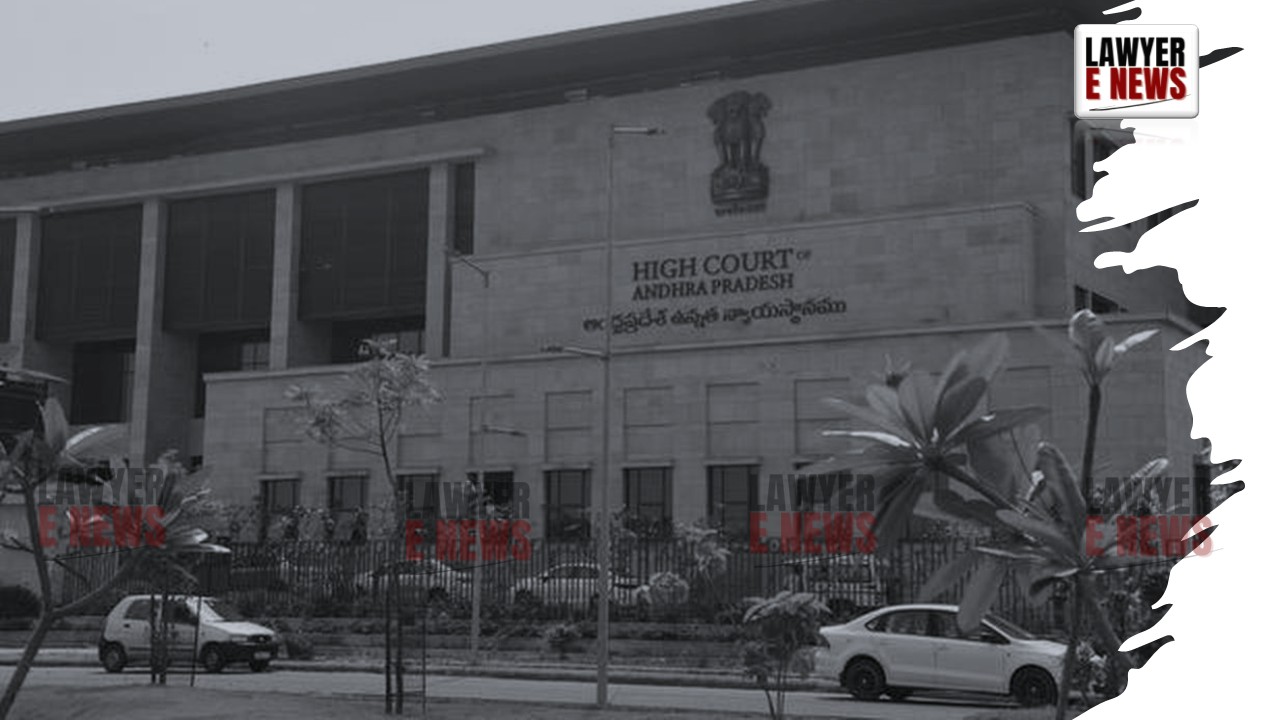-
by Admin
15 February 2026 5:35 AM



“Removal of a person’s name from revenue records without notice and an opportunity of hearing contravenes statutory provisions and the principles of natural justice.” - Andhra Pradesh High Court
The case pertained to the deletion of the respondent's father's name from revenue records concerning Ac. 1.02 cents of land in Survey No. 818/1, Janapadu Village, Piduguralla Mandal, Guntur District, without prior notice or an opportunity for the respondent to present objections. The court upheld the principles of natural justice and the provisions of the Andhra Pradesh Rights in Land and Pattadar Pass Books Act, 1971.
The division bench directed the Tahsildar to determine the rightful entry in the revenue records after providing due notice and an opportunity of hearing to both parties.
The court highlighted the violation of natural justice caused by the deletion of the respondent’s father’s name from revenue records without notice. It affirmed the Learned Single Judge’s finding that such an act violated both the statutory provisions of the Andhra Pradesh Rights in Land and Pattadar Pass Books Act, 1971, and the rules framed thereunder.
"Notice and opportunity of hearing are essential prerequisites before effecting changes in revenue records, particularly when such changes affect an individual’s legal and possessory rights," the court observed.
The case originated when the father of the respondent (Sathuluri Yesurathnam), who was recorded as the pattadar for Ac. 1.02 cents of land in the revenue records, had his name deleted by the 5th respondent (Tahsildar) without being issued a notice. Aggrieved, the respondent challenged this deletion in W.P. No. 8564 of 2022 before the Learned Single Judge.
On 28th November 2024, the Learned Single Judge held that the deletion of the respondent's father’s name violated natural justice and the statutory provisions of the Act. While refusing to adjudicate the title or possession disputes, the Learned Single Judge directed the restoration of the respondent’s father’s name in the revenue records and granted liberty to the appellant (Kattamuri Sai Baba) to approach the Tahsildar for further determination of rights.
The appellant, Kattamuri Sai Baba, filed Writ Appeal No. 28 of 2025, arguing that the restoration of the respondent’s father’s name would prejudice his case in a pending civil litigation over the title and possession of the land. The appellant contended that both parties should have been directed to approach the Tahsildar to determine the rightful entry in the revenue records.
The division bench agreed with the Learned Single Judge that the deletion of the respondent’s father’s name from the revenue records without notice or hearing violated the principles of natural justice and the provisions of the Andhra Pradesh Rights in Land and Pattadar Pass Books Act, 1971.
"Any alteration in revenue records that affects a person’s rights must be preceded by notice and an opportunity to present objections," the court emphasized.
The court clarified that revenue entries are not conclusive proof of title but are indicative of possession. The appellant’s argument that restoring the respondent’s father’s name would prejudice the appellant’s rights in a pending civil suit was dismissed.
"The restoration of the respondent’s father’s name does not determine the title or rights of the parties in the pending civil litigation. The appellant retains the right to establish title in the civil suit," the court observed.
The court noted that the Tahsildar is empowered under the Act to decide disputes related to revenue records. The Learned Single Judge’s direction to restore the respondent’s father’s name was appropriate, as it ensured compliance with natural justice and statutory provisions.
At the same time, the bench balanced the rights of both parties by directing the Tahsildar to reconsider the matter upon receiving an application from the appellant.
"The direction to the Tahsildar ensures that both parties receive a fair opportunity to present their claims regarding the rightful entry in the revenue records," the court held.
The court reiterated that procedural compliance by revenue authorities is essential to maintain fairness and transparency in administrative actions. In this case, the deletion of the respondent’s father’s name without adherence to due process was a clear violation.
The division bench dismissed the writ appeal and affirmed the order of the Learned Single Judge. It issued the following directions:
Restoration of Name in Revenue Records: The respondent’s father’s name shall be restored in the revenue records, as previously directed by the Learned Single Judge.
Determination by Tahsildar: The 5th respondent-Tahsildar is directed to determine the rightful entry in the revenue records upon an application being made by the appellant.
Timely Decision: The Tahsildar shall decide the matter within six weeks of receiving the application, after providing notice and an opportunity of hearing to both parties.
Pending Civil Litigation: The revenue entries and the Tahsildar’s decision shall not prejudice the determination of title or rights in the pending civil litigation.
This judgment reinforces the fundamental importance of natural justice and procedural fairness in administrative actions, particularly when they affect property rights. By restoring the respondent’s father’s name and directing a fresh adjudication by the Tahsildar, the court struck a balance between ensuring compliance with statutory provisions and preserving the rights of both parties in pending civil litigation.
Date of Decision: 10th January 2025
